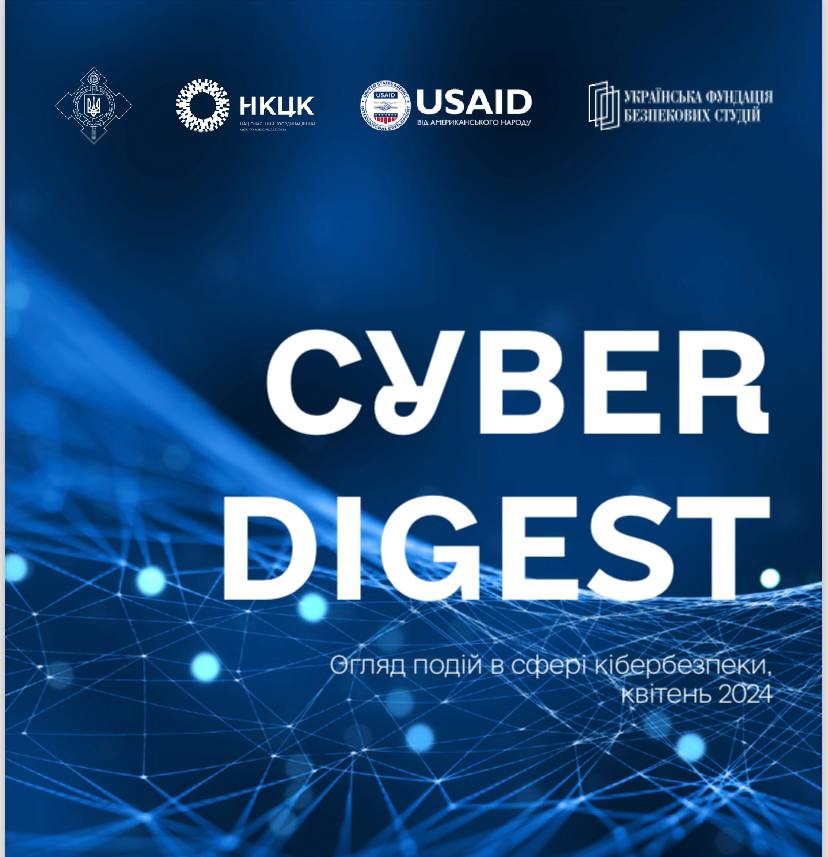Highlights of international and Ukrainian cybersecurity news in April 2024
 The US is stepping up cybersecurity measures and increasing funding on this track. The US National Security Agency has a new director of cybersecurity and the Pentagon has a cyber policy department established. The NSA and CISA continue to issue security recommendations (primarily on the implementation of the Zero Trust policy). At the same time, the number of cyber incidents is growing, including cyber attacks on municipal resources and the US water sector in April, the latter of which were carried out by russian hackers.
The US is stepping up cybersecurity measures and increasing funding on this track. The US National Security Agency has a new director of cybersecurity and the Pentagon has a cyber policy department established. The NSA and CISA continue to issue security recommendations (primarily on the implementation of the Zero Trust policy). At the same time, the number of cyber incidents is growing, including cyber attacks on municipal resources and the US water sector in April, the latter of which were carried out by russian hackers.
As part of its alignment with European and NATO standards in the digital and cyber spheres, Ukraine held its first meeting with EU representatives as a candidate country dedicated to digitalisation. The Ministry of Defence approved the basic principles of information security and cybersecurity in the ministry's information and communication systems, which will take into account NATO best practices and international standards. During the third international meeting of the National Cybersecurity Cluster, the participants discussed enhancing Ukraine's cooperation with the EU and NATO in cybersecurity. NCCC Secretary Nataliia Tkachuk called on the EU and NATO countries to jointly counteract cyber aggression by russia.
Ukraine is improving skills and raising awareness of cybersecurity matters at all levels. The NCCC conducted Vulnerability Management training for CAA representatives, the SSU National Academy launched an interagency educational platform for the security and defence sector, CERT-UA published guidelines for establishing two-step authentication, and the Cyber Police launched the Cyber Gate project to improve the level of cyber hygiene among Ukrainians.
The activity of Chinese hackers has soared, focusing on cyber espionage in the EU and manipulating social tensions in the US in the context of the US elections. China is also transforming its cyber forces, having created the Information Support Force this month. At the same time, the number of Chinese devices in US networks has grown by 40% over the past year to 300,000 (last year, the number was 185,000).
The European Union is adapting to the new cyber landscape, including the development of a cybersecurity-oriented Space Act and preparations for the introduction of post-quantum cryptography to prevent new cyber threats. To this end, the European Commission has released recommendations for EU members that point to the need to develop appropriate roadmaps. For its part, Germany is planning to create cyber troops to respond quickly to new threats.
Read more about legislative changes, initiatives of national actors, trends, forecasts and analytical assessments, international and Ukrainian news in cybersecurity in Ukraine here.